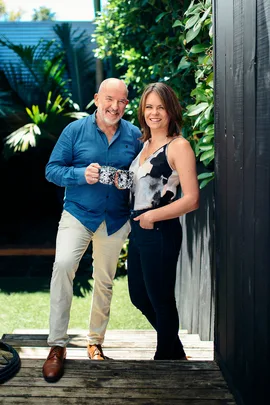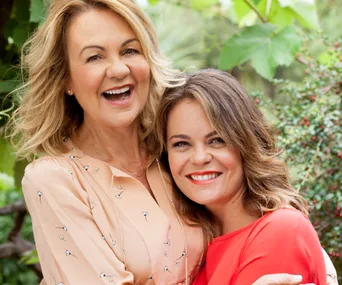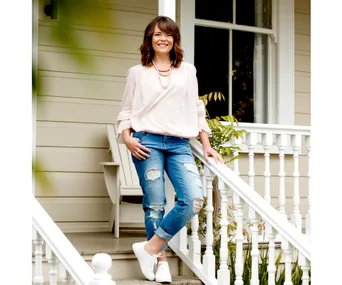There was a silver lining for Heather du Plessis-Allan when TV3’s nightly magazine programme Story was axed: she would finally have time for a summer road tour of the West Coast inspired by Eleanor Catton’s The Luminaries.
An interview du Plessis-Allan gave to the New Zealand Herald after the announcement that the programme was to be dropped resulted in MediaWorks ordering her off air. Now, du Plessis-Allan doesn’t know what the new year holds in terms of work. She is taking stock over the summer, with journalist husband Barry Soper, to try to find answers to the “what next” question.
Even before MediaWorks canned Story, du Plessis-Allan, who co-hosted with Duncan Garner, was tired of the long hours, the time away from Soper and work she described as “cut-throat”. She was told of the programme’s fate while Soper was in the US covering the American election campaign for NZME’s radio and newspaper networks.
Born in South Africa, du Plessis-Allan moved to New Zealand with her parents and two brothers when she was 12 and grew up in Pukekohe. Soper, a press gallery veteran journalist, is originally from Gore.
Before the fallout with MediaWorks, I met du Plessis-Allan, 32, and Soper, 64. They were looking forward to catching up on reading over summer, and were also contemplating starting a family.
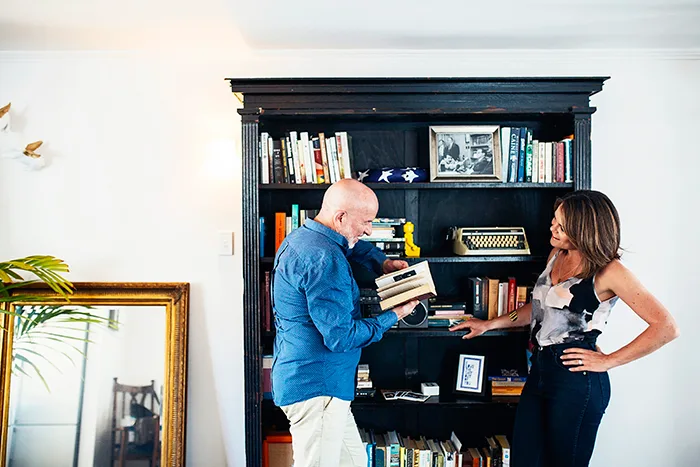
Photo/John Mailley
Is it tricky working in the same industry? Do you tell each other what stories you’re working on?
H: We work in totally different disciplines. I interviewed Eleanor Catton, the first time she had spoken about what happened with Sean Plunket’s “ungrateful hua” comment. I came home and told Barry that she had these amazing insights into what it was like to go through this public persecution of being considered a traitor to New Zealand. People say “get better work stories” but you don’t need to if someone is in the same line of work as you.
B: I haven’t met Eleanor Catton but we have both read The Luminaries and both loved it. Heather is now determined to go to Hokitika.
H: When I met Eleanor, I said, “I love your book, can’t wait to go to Hokitika.” I am sure I am the first person in the history of the book to say I want to go there now. But maybe not. I am sure other people have had their imaginations sparked by the book.
B: It opened up the West Coast so much. I have been there many times. It brought you back to what it was like back [in the days of the gold rush]. I am from Southland and you hear all these stories over the years. My family came in the late 1840s, to the goldfields, so it was fascinating to envisage your own family around this era.
H: I want to go on a road trip including Hokitika. It’s going to be a Luminaries tour with friends: I am detouring them big time to get them to Hokitika. We are getting a campervan, we are going to do it like normal tourists.
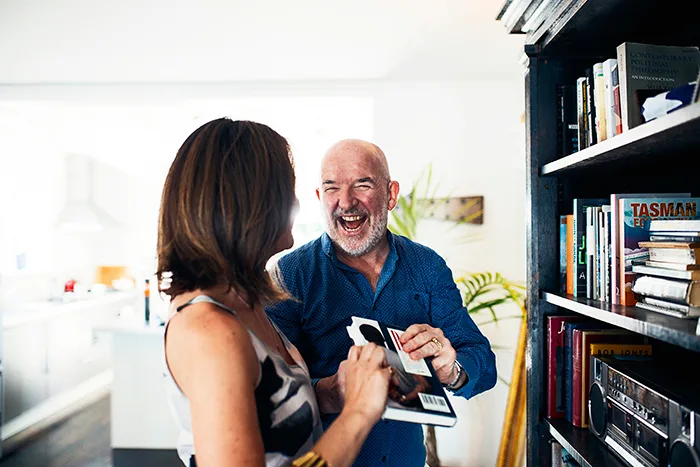
Photo/John Mailley
Do you have to behave better than a normal tourist, since you’re a recognisable face?
H: I guess so. I have been in TV since I was 23. There is a fair bit of growing up to do in your twenties, and every year I become more aware. I would rather have grown up in television, as I have, than be thrown into it in my thirties, perhaps having established bad habits or something.
B: Of all the people I know, Heather is unaffected by the television thing. She would rather not be recognised.
H: You don’t get much out of a public profile in New Zealand. I am sure there might be la-di-da places that want you to be seen in their window but it rarely happens. There is very little benefit, I would say, and a lot of downside.
Is being recognised an issue for you, Barry?
B: It’s my voice more than anything else. The minute I open my mouth, people say, “Oh, you’re that political guy, aren’t you?” I get a lot of that and have had for years, even on the phone. The thing about people approaching you is that you should always be nice to them. Most of them are just curious to see what sort of person you are.
Does Barry often share his wisdom and insights with you?
H: Definitely. I think his best advice is to take the time to talk to people. When you are young, that kind of intrusion into your life can be a problem. Fortunately the attention increases gradually, so it is not like being Justin Bieber and suddenly having fame. It can be a little annoying when you least expect it, but Barry says just be nice to people, which is the best advice ever. It is something to live by: just be nice.
Have you ever contemplated working together?
H: It’s never going to happen. You have to say, “My marriage is too important to taint.” Work is so cut-throat. I don’t want my marriage involved in that.
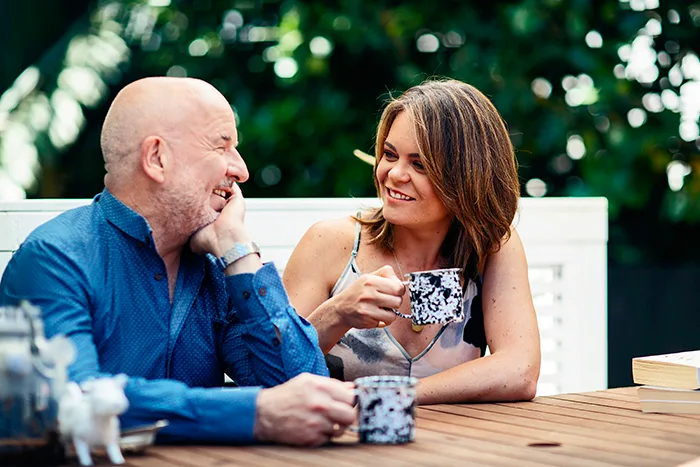
Photo/John Mailley
What’s the best story you’ve had?
B: The best you ever did, Heather, was the Saudi sheep story – that severely embarrassed the Government. Mine was Nelson Mandela’s inauguration in 1994. And you remember the press gallery’s 125th anniversary dinner? My biggest coup in journalism was getting Mandela there. I have so many stories about Mandela, such as how he found out about the Springbok Tour protests while he was in prison. I will write a book one day. I have already started it in my head.
H: Barry likes to say he thought he would never marry a South African, because he had these strong feelings about apartheid and what white South Africans had done. Now I am single-handedly trying to do some PR for people from that country.
B: And she speaks Afrikaans, which I thought was the epitome of that sort of person.
H: I left South Africa when I was 12. I can speak it and understand a conversation, but business and professional Afrikaans I don’t get at all. I struggle to understand, and all these South Africans send me Facebook messages asking for my help, in Afrikaans. It’s very stressful. They think they will get a sympathetic journalist.
You both have reputations as being fairly tough journalists – what about behind the scenes?
H: Barry is a genuinely lovely man and people don’t always expect that because he has been around politics a long time. He teaches me all the time that kindness is more important than honesty – it’s a debate I have all the time, but he has persuaded me it is kindness.
B: I think I have probably softened a bit in my old age. I may have been a bit of a tyrant years ago. Age mellows you. Heather is very strong and very clever. She doesn’t suffer fools gladly and she’s sometimes taken the wrong way, which is unfortunate because I know what she means. I think it is a South African kind of thing: South Africans are quite gruff at times as people and people misread them.
H: I am the product of two very different cultures that could not be more different in the way they deal with people. I like to say I am part-Kiwi because my Dad has lived here since he was a teenager, even though he is from England. Kiwis are unfailingly polite, to a fault. Sometimes all you want to know is what the hell is going on. South Africans are honest to a fault, rude at times, so you have this clash of cultures.
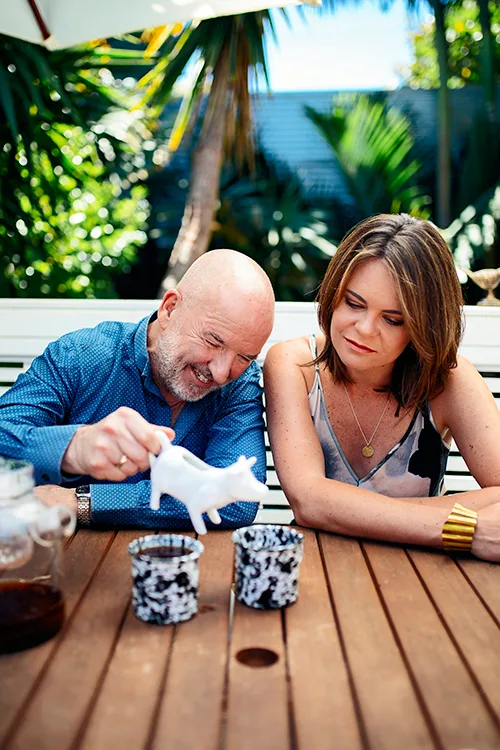
Photo/John Mailley
Do you have a 10- or five-year plan?
H: In 10 years I would like to have kids. I would like to have a bit more work-life balance after 18 months of being apart from my husband half the week. It is a young person’s game and I am too old.
Have you peaked too early?
H: Maybe. I am 32. I just feel like, man, even in the press gallery it is hard graft. This is a tough job, not just for us but for everyone in the job. News reporters put in a 10-hour day. You can’t raise kids like that. I want that work-life balance pretty quickly. And if I don’t have it in 10 years, I am probably going to be broken in my head. We have seen broadcasters slug their guts out and where does it get them?
B: I never thought until nine years ago that I would have any more children. I have five but, because of Heather, I am more than happy to have more children. I would see myself as a house husband, maybe writing from home. I already do most of the cooking and I enjoy it. My kids have had to get used to the idea Dad might have more children as well; I have talked to them about it.
And when you get the chance, what do you read?
B: At present, I am reading a novel by James Swallow, Nomad. The book before that, which we both read, was The Lynching by Laurence Leamer, about the downfall of the Ku Klux Klan. I enjoyed Orange is the New Black by Piper Kerman before it was made into a TV series, and I also read American Sniper by Chris Kyle before it was a movie. I loathed Kyle, who was subsequently killed by someone at a rifle range. He bragged about having a human bag of 166 people and I thought if every soldier who went to Iraq in 2003 had the same view as him, no wonder there is ISIS today. Every page I turned in that book, I got more furious.
H: I didn’t read it. I got to live through it once already and some books I just wish would go up in flames in his hands, so I don’t have to hear about them any more. Barry vocalises a lot when he reads.
Words: Clare de Lore
This article was first published in the January 7, 2017 issue of the New Zealand Listener. Follow the Listener on Twitter, Facebook and sign up to the weekly newsletter.
